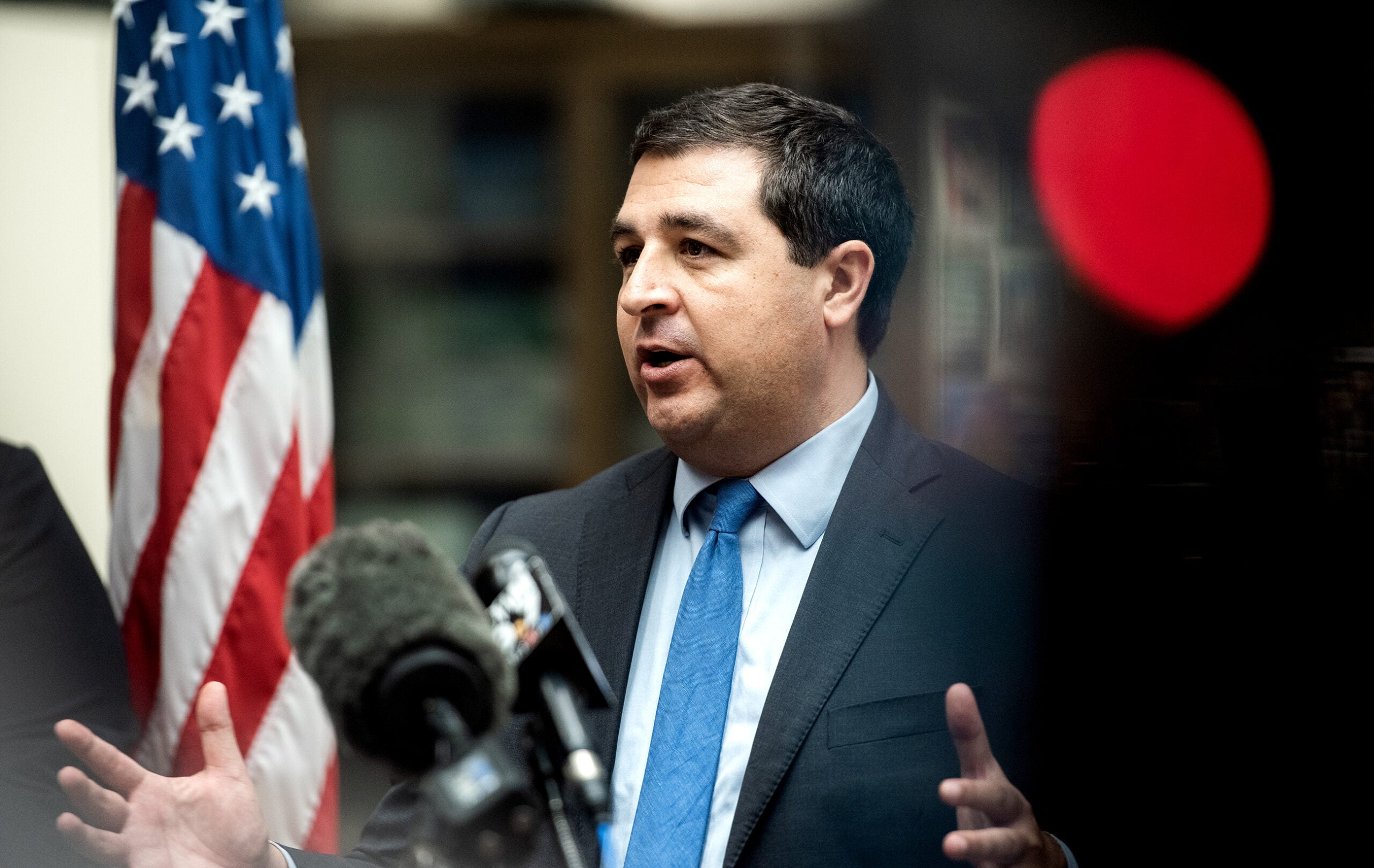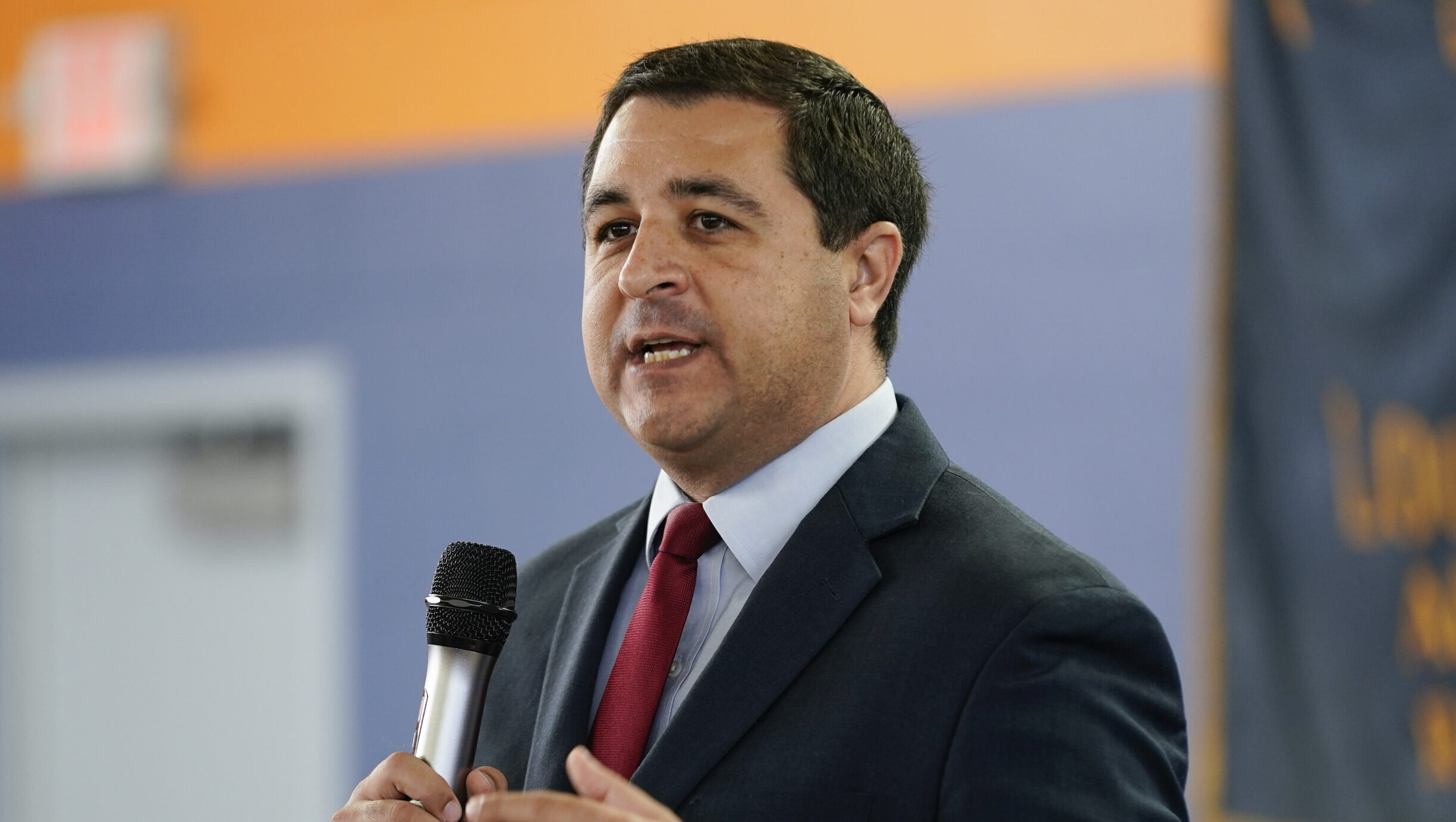The Wisconsin Supreme Court has temporarily restored nearly all of the laws Republicans passed in December’s lame-duck session, including one that makes it harder for Democratic Attorney General Josh Kaul to leave or settle federal lawsuits.
The court issued its stay order Tuesday night, a day before the case was set to go to trial in Dane County Circuit Court.
In a 4-3 ruling, the court’s conservatives acknowledged their stay might delay the attorney general’s ability to settle cases where funds are distributed to the public.
News with a little more humanity
WPR’s “Wisconsin Today” newsletter keeps you connected to the state you love without feeling overwhelmed. No paywall. No agenda. No corporate filter.
“On the other hand … the public as a whole suffers irreparable injury of the first magnitude where a statute enacted by its elected representatives is declared unenforceable and enjoined before any appellate review can occur,” justices wrote.
The case was filed by the Service Employees International Union (SEIU) and others in organized labor. It argued the laws Republicans passed in December’s extraordinary session violated the state constitution’s separation of powers protections.
Dane County Judge Frank Remington issued a ruling in March that struck down several of the laws, including the one that limited the power of Kaul.
Remington’s ruling came shortly after Dane County Judge Richard Niess ruled in a separate case that the entire lame-duck session was unconstitutional.
The Republican-authored laws had initially prevented Kaul and Democratic Gov. Tony Evers from fulfilling a campaign promise to withdraw Wisconsin from a multi-state lawsuit against the federal Affordable Care Act. Kaul and Evers later fulfilled that promise while lower courts put the lame-duck laws on hold.
The Wisconsin Supreme Court took over the appeal of the SEIU case in April. The Tuesday ruling means most of the laws will be reinstated while the appeal proceeds.
Sen. Majority Leader Scott Fitzgerald, R-Juneau, celebrated the stay order.
“Today’s ruling is a win for the people of Wisconsin,” Fitzgerald said in a statement. “The Supreme Court correctly decided the statutes enacted by the Legislature should remain in effect. We are confident that the constitutionality of these laws will be upheld when the Court hears the full case in the coming months.”
Kaul issued his own statement noting the case was not over.
“This litigation will continue,” said Kaul in a written statement. “We will continue to stand up to the Legislature’s unconstitutional attempt to undermine DOJ’s ability to get justice for Wisconsinites.”
Tuesday’s ruling did not reinstate all of the lame-duck provisions.
One that would require agencies to get the Legislature’s approval for thousands of so-called guidance documents remains on hold. Lawmakers gave agencies a deadline of July 1 to submit the documents, and justices wrote that reinstating the requirement now wouldn’t give agencies enough time to comply.
While the court may ultimately rule in favor of Republicans, Tuesday’s ruling was only a temporary stay while the appeal proceeds.
The SEIU case is one of four lawsuits challenging the lame-duck session.
The Wisconsin Supreme Court is also handling the appeal in the lawsuit brought by the League of Women Voters of Wisconsin among other groups. That case contends the entire lame-duck session was unlawful because the Wisconsin Constitution does not explicitly allow for “extraordinary” sessions of the Legislature. The Supreme Court heard arguments in that case last month.
Two cases are being heard in federal court.
In one, Judge James Peterson blocked a lame-duck provision that restricted early voting in Wisconsin. Peterson’s ruling remains in effect, and the lame-duck restrictions on early voting remain on hold, regardless of Tuesday’s action by the Wisconsin Supreme Court.
In the other federal case, the Democratic Party of Wisconsin is seeking to overturn the entire lame-duck session on the grounds that it violated the U.S. Constitution’s guarantee of a Republican form of government, where the majority rules.
Wisconsin Public Radio, © Copyright 2026, Board of Regents of the University of Wisconsin System and Wisconsin Educational Communications Board.





